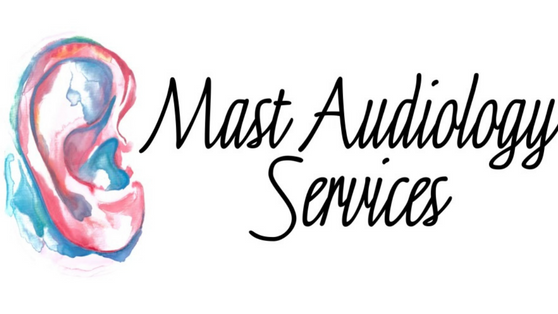Julia Louis-Dreyfus (Veep and Seinfeld) stars as Beth, a novelist who is currently working on her first fiction book. She also is a professor at a university in New York City where she lives with her husband. She frequently visits her adult son who currently works at a store that sells recreational and probably medicinal marijuana. She visits him because he's also a writer, an aspiring one, and she visits him in order to encourage him to finish a piece on which he's been working for a while. Her best friend is her younger sister with whom she spends time almost every day. She also takes time to lunch with and accompany her ailing and nagging mother.
Things take a turn when one day, Beth overhears her husband, Don, played by Tobias Menzies (The Crown and Outlander), tell his brother-in-law that he doesn't like Beth's current book. Her current book hasn't been published yet. She's still writing drafts for it, but she's given the drafts to Don. After reading them, he told her that he likes the book. Therefore, it's in this moment that Beth realizes that Don has been lying to her and lying to her for quite some time. This devastates her and makes her start to question her relationship with him, as well as relationships in general.

Written and directed by Nicole Holofcener (Can You Ever Forgive Me? and Enough Said), the film raises some interesting questions. The first is about what's commonly known as "white lies." The question would be when are they appropriate or how often should one employ them? It's established that everybody in this narrative and indeed everybody in the real world employs white lies when it comes to trivial things. The real hard-hitting question concerns telling white lies regarding the work or career of one's spouse or loved one. The implication is that a person doesn't want to do what the title of this film bluntly states. The implication is that if you love someone, you want to encourage them by only saying nice things, even if that's not what you believe, think or feel. The follow-up question then becomes what kind of damage could that cause?
Owen Teague (Mrs. Fletcher and Bloodline) plays Eliot, the aforementioned son of Beth and Don, their only child. He's having relationship problems, as well as anxieties over a play that he's writing. He believes his issues stem from the fact that his parents, particularly his mother, fed him too many white lies or "encouraged" him too much as a child. Eliot does make a valid point that too much encouragement could lead to a false sense of self or false validation could lead to psychological issues.

Luckily, his father is a psychologist or a therapist who could in theory help with those issues. Yet, in the case of Beth, there's one contingency that's not considered. Her encouragement of her son might not be false validation, if she believes that her son's work is good or worthy. One could argue that a parent is naturally biased to always see the good in their child. Most people, I think, accept that bias, so therefore they seek validation elsewhere. Therefore, it's odd that Eliot would become resentful of his mother for that fact, something with which this film never grapples.
When Beth learns that Don has been lying to her about liking her book, she says that it's more painful because she valued his opinion so much. However, that is never examined either. The film never asks or establishes why does she value his opinion so much. Don isn't an author. He's not a writer. Yes, he's a well educated man, but what makes him an authority or his opinion so valuable when it comes to writing books or novels? Is it simply because she loves him and he is her husband?

When her sister, Sarah, played by Michaela Watkins (Casual and The New Adventures of Old Christine), asks to read Beth's book, Beth says no. Obviously, Beth loves her sister. Yet, she won't let Sarah read her book, so Beth wants Don's opinion about her book for reasons that go beyond simply her love of him. Unfortunately, the film never explains what those reasons are.
Beth spirals at the thought that Don didn't like her current book. She even suggests that maybe Don was lying to her about liking her previous books. That suggestion is never confirmed. In fact, it's more implied that Don probably is fine with her previous works. Yet, this film would've had more teeth, if Don revealed that he didn't like her previous books as well. It would reinforce the other question Holofcener's film asks. Can you love someone if you don't love their work or don't think they're good in their career or profession? This question is exacerbated when someone's career is an artistic one that requires creativity or expressions that come from a very personal place.

Yet, Holofcener's film also has no interest in any kind of literary analysis or breaking down literary criticism. At no point do Beth and Don actually deconstruct what it is he dislikes or what might be wrong with her book, if anything. Beth's agent suggests that something might be wrong with the book. Instead of addressing those concerns, Beth simply takes her book to another younger agent who publishes it without question. I'm not exactly sure what is to be gleaned from this. At one point, Don says his opinion doesn't matter. It only matters if Beth likes her book, which might mean that looking for external validation isn't the way to go.
Except, that doesn't play out with regard to Holofcener's other characters here. There are scenes involving Don and his therapy sessions with various patients. We see Don repeatedly interacting with several of them. At the beginning of the film, he seems tired and not engaged with his patients. He's not paying attention and he's confusing them with others. He's also seemingly not forthright. It's not until he experiences something similar to what Beth experienced does he begin to change. Don overhears one of his patients, played by Zach Cherry (Severance), saying he doesn't like the work he's doing. This then motivates Don to do better in his job. This underscores that not external validation but external criticism is the way to go.

Arian Moayed (Succession and Inventing Anna) rounds out the main cast as Mark, the brother-in-law to Beth and Don. He's an actor who's mainly working on stage, doing live theater. He becomes disillusioned when he gets fired from an acting job. He begins to doubt his abilities because as an actor getting external validation is a constant. He tries to break away from that by quitting acting, but eventually goes back to it. Holofcener perhaps is trying to underscore that while external validation could be toxic, people still crave it or maybe need it.
Rated R for language.
Running Time: 1 hr. and 33 mins.
In theaters.

































